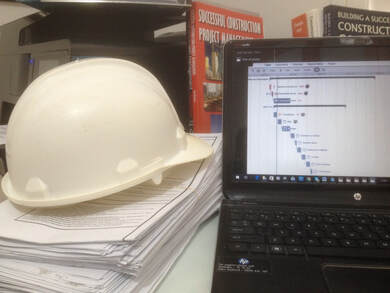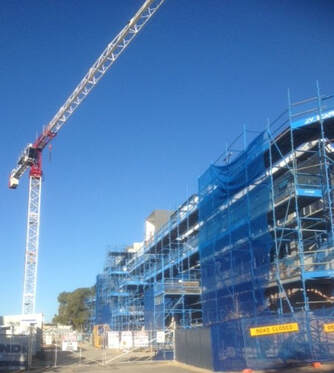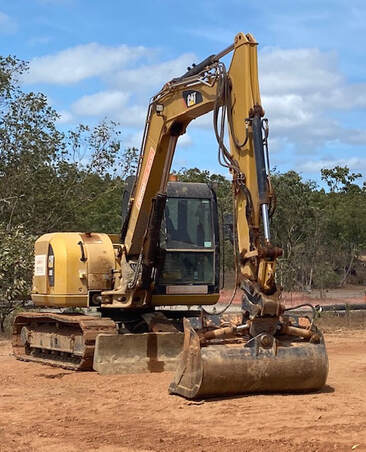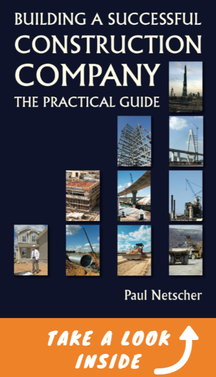"Unfortunately many construction projects are completed late." Unfortunately many construction projects are completed late. Invariably this negatively impacts the contractor’s reputation and costs both the contractor and their customer money. Often the contractor has to pay penalties for finishing the project late and they incur additional costs to remain longer on the construction project. The customer receives access to their facility late and usually faces additional costs for supervising the project for a longer period. #constructiondelays A well-prepared construction schedule which is regularly updated allows us to detect early when a construction project is running late. The Good, the Bad, and the Ugly of Construction Project Schedules. When we fall behind, the normal course of action is for the contractor to place more resources on the project or work extended hours in the hope of catching the lost time up. Unfortunately, this doesn’t always help as the true cause of the slippage hasn’t been uncovered. In fact adding more people or resources to the construction project may even add to congestion making the problem worse – especially if they aren’t the right resources. "When schedule slippage is detected it’s important to uncover the real reasons and then take action to rectify the problems." Usually, the longer the problem persists the worse the schedule slippage becomes, and the less time remains to catch-up the lost time on the construction project. When schedule slippage is detected it’s important to uncover the real reasons and then take action to rectify the problems. Sometimes the cause may be a minor bottleneck which could be fixed with small adjustments to the running of the project. Why construction projects are completed lateReasons for construction projects falling behind schedule There are many reasons for a construction project finishing late. In this article I’ll only focus on reasons caused by the contractor. These include: 1. Material handling on the project site – this is one of the commonest causes of delays on projects. Construction materials aren’t reaching the area where they’re required. This is a particular problem with multi-storey buildings where everything has to be lifted by crane. Projects often underestimate the number of cranes required, forgetting that trucks have to be off-loaded and that lifting activities don’t happen uniformly throughout the day. Congested project sites can also be a problem delaying construction material deliveries and blocking access routes. What can appear simple on a piece of paper, getting an item from point A to B, is sometimes not so simple on a busy construction project. Yet often simple steps such as packaging materials differently, having more materials handling equipment, working the lifting equipment longer shifts, changing the sequencing of lifting in the day or more focused supervision on this activity can unblock this bottleneck and improve production on the whole construction project. Handling construction materials "Project Managers often underestimate the number of cranes required," 2. Poor productivity. If our labour and equipment aren’t producing what is normally expected we will need extra resources to complete the same amount of work. However, just throwing additional resources at the construction project doesn’t always yield the desired result and it’s also very costly. It’s often more effective to uncover why the productivity is low and try and rectify the problem. Some reasons for poor productivity include:
3. Frequent breakdowns of construction equipment. Breakdowns of key items of equipment such as cranes, concrete mixing plant or excavators can cause severe disruption to a construction project. After suffering innumerable delays on my projects due to crane breakdowns I persuaded the company of the folly and the cost of using old cranes and we embarked on a replacement scheme. Sure, new mobile cranes are expensive, but just the increase in productivity on our construction projects more than compensated for these additional costs. Regretably, those studying project construction schedules don’t always appreciate how disruptive broken construction equipment can be. Even hiring a better replacement item can change the mood and productivity on the project. The Alarming Truth about Using Old Construction Equipment "Breakdowns of key items of equipment can cause severe disruption to a project." 4. Shortage of construction materials. This is usually caused by the team not ordering sufficient materials or not allowing for fabrication lead times. Sometimes however the supplier has their own problems, and it may be easily resolved by approaching another manufacturer. Even problems with insufficient delivery trucks can disrupt supplies. It could be an easy fix by bringing on other transport companies. Do Your Material Deliveries Suck? How to avoid problems 5. Theft of construction materials or equipment. In previous articles I highlighted one project where a third of every load of cement the project received was stolen en route. The project experienced cement shortages which hampered our production and caused delays. Sometimes the theft could be as small as removing a battery from an excavator which, in the countryside, could mean the machine and the other equipment working with it stands for several days. Even the theft of small electrical tools from a tradesman can mean they’re not working efficiently for hours or even days. (A wave of tool theft spurs hi-tech security systems) Unfortunately theft can create bigger problems particularly if it is a long lead item such as an electrical distribution board. Corruption, Fraud and Theft in Construction 6. Having too few resources of a particular trade. I’ve often experienced construction projects where one trade has held up the others. For instance, if you have insufficient scaffolders you aren’t going to be erecting the scaffolding fast enough for your steel fixers and carpenters, so they are going to be standing. If you need more people, ensure you get those with the construction skills that are insufficient on the project and not just more of everyone. Sometimes there is only a minor hold-up and it may be possible to get the construction project through by asking a few employees with the required skills to work extended shifts. "Rectification work takes valuable resources away from critical tasks." 7. Poor quality work resulting in rework. Poor workmanship causes delays when completed work has to be demolished and rebuilt. Even minor rectification work can take valuable resources away from critical tasks. Who is responsible for quality on your construction project? 8. The Supervisors and the team doing the work aren’t aware or don’t understand the construction schedule. This may seem stupid, yet, this happens surprisingly often. Management may give a copy of the updated construction schedule to Supervisors but often this is the schedule for the whole project for the remaining duration and it could be several or even hundreds of pages long. Most Supervisors are only concerned with their section of work and what needs to be done in the next couple of weeks. Therefore, give them only their relevant sections of the construction schedule for the next few weeks. In fact, I’ve found that, if possible, providing a construction schedule in a pictorial form highlighting the important dates works well, as it can be put up on their office wall and is easily understood by their team. Even better is to spend time explaining to the Supervisor what needs to be achieved and explaining why certain dates are critical to the construction project. It’s amazing how a team who know what they have to achieve and the reasons behind it can then deliver. Does Your Team Know What's expected From Them 9. Neighbouring sections of construction work negatively impact each other. This is usually because of congestion, safety issues or access problems. By analysing these problems sometimes we can develop solutions which may mean using different access systems, bigger cranes, additional safety measures, changing the sequence of the work, or even working different shifts (one section could work day-shift while the other at night). Yes, there may be additional costs, but not falling behind schedule is often more important. 10. A subcontractor isn’t performing. One non-performing subcontractor can impact other subcontractors and your own team. Often all it takes is the subcontractor to improve their performance, bring on extra people to stop slippage on the schedule. In extreme cases you may consider taking work away from the subcontractor. Of course ensure that your dealings with the subcontractor are in accordance with your contract with them. Also, understand why they aren’t performing as the reasons could be due to your team or the customer’s team. Managing subcontractors on your construction project. What you should consider. Find what is delaying your construction project and fix the issueWe will all at some stage fall behind schedule on our construction projects. It’s important we detect this slippage early. Then, don’t take the obvious choice and add more people to the construction project, but rather analyse the reasons for the slippage and then take the necessary action to rectify these issues. Spend some time in the field and watch what the construction teams are doing. Where are the bottlenecks? How could we do things better? Make sure your team understands the key dates on their section of work and how it impacts the project as a whole. Of course, construction projects aren’t only finished late because of the contractor’s failings, it’s often caused by the customer or their team. My next article will deal with how customers can cause projects to finish late. Is your client delaying your construction project? It’s important to consider and address all the causes for a project running late so you can ensure slippage is caught up and the project is completed on time. #constructiondelays #constructionmanagement #constructionprojects To read more about the author’s books and find out where you can purchase them visit the pages on this website by clicking the links below:
'Successful Construction Project Management: The Practical Guide' 'Building a Successful Construction Company: The Practical Guide' 'Construction Book reviews' To read more about the author visit the page 'Paul Netscher' Want to contact Paul Netscher please enter your details on 'Contacts' Find out how Paul Netscher can help you Order your books from Amazon Order your books from Amazon UK © 2022 This article is not to be reproduced for commercial purposes without written permission from the author. construction management construction project management
18 Comments
Brian Avallons
3/3/2016 08:03:43 pm
Great post! I do, however, think that you left out one critical element to why projects are completed late and it can be an element of at least 5 of your top 10.
Reply
SUDIPTA SAHA RAY
8/3/2016 03:31:48 pm
Well explained
Reply
Paul
8/3/2016 08:24:39 pm
Thank you for your comments.
Reply
kathy
9/3/2016 01:04:52 am
I agree
Reply
Stephen
9/3/2016 04:13:11 am
I like the general list of problems that can create scheduling failures but I've run into another that can cause serious delays in the completion of a project. The structural relationship between a subcontractor and the developer must be organized in such a way as to reduce delays in administrative processes. In a recent project where I was the lead QA/QC manager. I ran into a situation that created extensive delays in the continuation of work through requirements by the developer for time to analyze work completed at each step of an Inspection Test Plan. While a certain amount of time is required to confirm the submissions of QA/QC staff this lost time can seriously affect the time required to complete the project and can negatively affect the profitability of the subcontractor. This is totally significant if there are numerous hold points in a project and the developer is slow at signing off at each point. When we initially started the project the developer sent us a note requiring a full day to inspect our work at each hold point. As there were in excess of 20 hold points time lost would have amounted to almost three weeks with our numerous employees unable to work and yet costing us money. Thankfully I was able to renegotiate and reduce this inspection process to hours and the project went as smoothly as could be hoped. In future work I recommended to our company that the developers inspection process follow ours and time required to sign off be capped.
Reply
Paul
9/3/2016 01:39:58 pm
Hi Stephen thanks for your comments. My next article will deal with client related delays and one of the points is about what you mention. If these extra hold points and inspection delays could not have been foreseen at time of tender then this should be reason for a variation claim and extension of time.
Reply
12/3/2016 06:06:42 am
Enjoyed reading those points a good management team would help.
Reply
Pfarelo
12/3/2016 03:33:25 pm
Agree
Reply
Don
20/3/2016 12:22:24 am
Paul
Reply
Paul
20/3/2016 11:25:59 am
Thanks Don. Unfortunately many projects suffer from the same problems.
Reply
22/3/2016 05:19:27 pm
Excellent article- simple and lucid!
Reply
Paul
23/3/2016 09:23:36 am
Hello Shyamal, thank you for your kind comments.
Reply
Hafiz
23/3/2016 09:11:31 pm
Good article and well explained.
Reply
Paul
25/3/2016 03:34:36 pm
Thank you Hafiz for your comments. It's essential project staff have the support from senior management. This could include helping to source additional resources. Often senior management visiting the project means a new set of eyes may see bottlenecks that the project team has missed. The visits should be supportive and not focused on allocating blame.
Reply
2/11/2016 12:46:45 am
Is there any reliable public data that shows how late residential construction projects typically are?
Reply
Paul
2/11/2016 10:26:00 am
Hello Steve, I haven't seen specific statistics regarding how late residential projects are. It would be interesting to see them. I suspect some could provide horrifying reading. Then of course we have projects handed over and yet the contractor's workers are still finishing off the project long afterwards.
Reply
21/12/2020 10:04:16 am
You made a good point when you shared that it is wise to get new cranes as it will ensure an increase in productivity without causing any problems that will only reduce the efficiency of the work. Besides, it will help to make sure that the construction can be done within the required timeframe. I would like to think if a company is going to work on a construction project, it should consider getting new cranes from a reliable supplier.
Reply
Leave a Reply. |
Archives
June 2024
Note: We welcome genuine comments, especially comments that add additional information to the subject matter in the article. We however reserve the right to remove inappropriate comments, which includes comments that have nothing to do with the subject, comments that include inappropriate language, and comments that are an advertisement for a product or company, or which include an advertising link. Comments must be in English. We will not enter into discussion on why a particular comment was removed.
CategoriesCopyright 2016 - The attached articles cannot be reproduced for commercial purposes without the consent of the author.
The opinions expressed in the attached articles are those of the writer. It should be noted that projects are varied and different laws and restrictions apply which depend on the location of the contractor and the project. It's important that the reader uses the supplied information taking cognisance of their particular circumstances. The writer assumes no responsibility or liability for any loss of any kind arising from the reader using the information or advice contained herein. "I have what I consider some of the best books on construction management."
Books are available from: Amazon.com Amazon.co.uk takealot.com kalahari.com Amazon.in Amazon.de Amazon.fr Amazon.it Amazon.com.au Powell's Fishpond uread bokus Amazon.ca Amazon.es Other retail stores Available in paperback or on Kindle "28 YEARS OF CONSTRUCTION PROJECT MANAGEMENT EXPERIENCE, DEVELOPING SUCCESSFUL CONSTRUCTION PROJECT MANAGERS AND BUILDING SUCCESSFUL CONSTRUCTION COMPANIES"
|













 RSS Feed
RSS Feed




